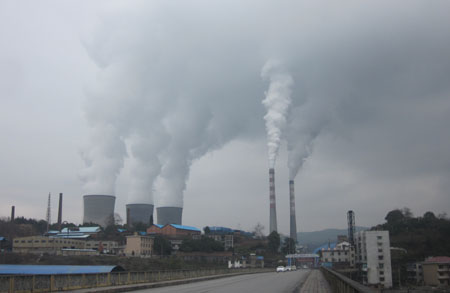by WorldTribune Staff, June 22, 2020
Emissions are likely to decrease in 2020 due to the coronavirus, but the world would need many more pandemics to offset China’s voracious appetite for coal, analysts say.

BP’s chief executive Bernard Looney wrote in a LinkedIn post that in order to get to net zero emissions by 2050, the world would need similar-sized reductions in carbon emissions every other year for the next 25 years.
“We can’t lockdown every year. We need another way — to build back better,” said Looney.
According to BP’s Statistical Review of World Energy, China’s carbon dioxide emissions increased by 3.4 percent last year, higher than the ten-year average growth rate of 2.6 percent. It was the highest growth rate of Chinese emissions since 2011.
China has more coal-fired power plants under construction that the rest of the world combined.
Chinese CO2 emissions accounted for the single largest share of global carbon emissions last year — 28.8 percent, according to BP’s annual statistics report.
Meanwhile, (despite corporate media reports predicting the contrary) under the Trump administration U.S. energy-related carbon dioxide emissions fell 2.9 percent last year, according the International Energy Agency (IEA). It was the largest decrease of any country on the planet.
At the start of this year, environmental economist Lord Nicholas Stern said that China would be the key to the global action to fight carbon emissions and climate change.
According to Lord Stern, China needs to reduce its reliance on coal, but the communist country saw its coal capacity surge in 2019 to the point of raising the world’s net capacity additions of coal-fired power generation for the first time since 2015, a report from environmental organizations showed earlier this year.
China was also the key driver of energy consumption growth last year when global growth slowed down to 1.3 percent from 2.8 percent energy demand growth in 2018, the BP statistics report said.
While global energy demand growth slowed down, the growth in carbon emissions from energy was 0.5 percent in 2019, less than half the ten-year average growth of 1.1 percent per year. Slower energy demand growth and increased use of renewables and natural gas instead of coal helped reduce the carbon emissions growth, partially reversing some of the unusually strong 2.1-percent increase in global emissions in 2018, BP said.
Intelligence Brief __________ Replace The Media
